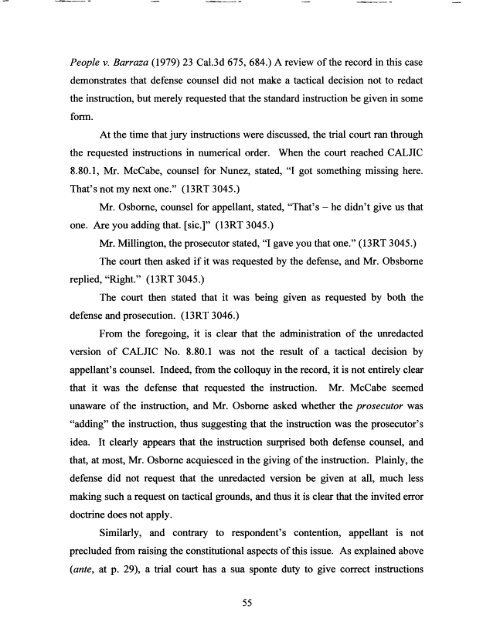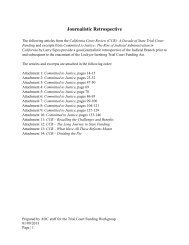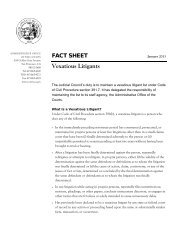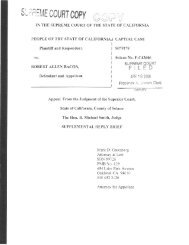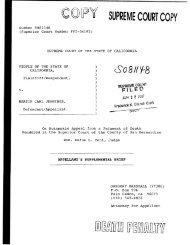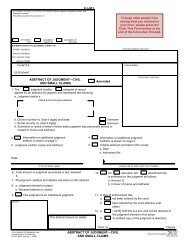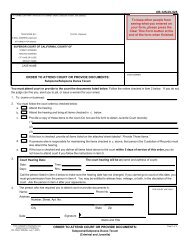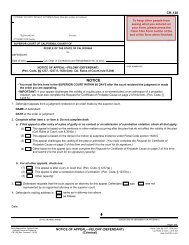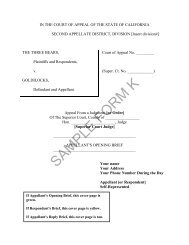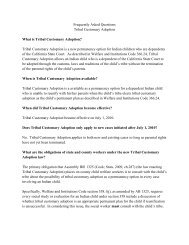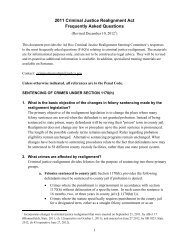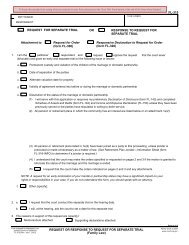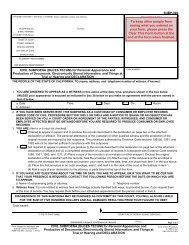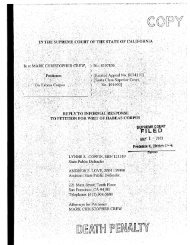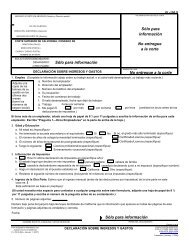Appellant, William Satele, Reply Brief - California Courts - State of ...
Appellant, William Satele, Reply Brief - California Courts - State of ...
Appellant, William Satele, Reply Brief - California Courts - State of ...
You also want an ePaper? Increase the reach of your titles
YUMPU automatically turns print PDFs into web optimized ePapers that Google loves.
People v. Barraza (1979) 23 Ca1.3d 675, 684.) A review <strong>of</strong>the record in this case<br />
demonstrates that defense counsel did not make a tactical decision not to redact<br />
the instruction, but merely requested that the standard instruction be given in some<br />
form.<br />
At the time that jury instructions were discussed, the trial court ran through<br />
the requested instructions in numerical order. When the court reached CALJIC<br />
8.80.1, Mr. McCabe, counsel for Nunez, stated, "I got something missing here.<br />
That's not my next one." (13RT 3045.)<br />
Mr. Osborne, counsel for appellant, stated, "That's - he didn't give us that<br />
one. Are you adding that. [sic.]" (13RT 3045.)<br />
Mr. Millington, the prosecutor stated, "I gave you that one." (l3RT 3045.)<br />
The court then asked if it was requested by the defense, and Mr. Obsborne<br />
replied, "Right." (13RT 3045.)<br />
The court then stated that it was being given as requested by both the<br />
defense and prosecution. (13RT 3046.)<br />
From the foregoing, it is clear that the administration <strong>of</strong> the unredacted<br />
version <strong>of</strong> CALJIC No. 8.80.1 was not the result <strong>of</strong> a tactical decision by<br />
appellant's counsel. Indeed, from the colloquy in the record, it is not entirely clear<br />
that it was the defense that requested the instruction. Mr. McCabe seemed<br />
unaware <strong>of</strong> the instruction, and Mr. Osborne asked whether the prosecutor was<br />
"adding" the instruction, thus suggesting that the instruction was the prosecutor's<br />
idea. It clearly appears that the instruction surprised both defense counsel, and<br />
that, at most, Mr. Osborne acquiesced in the giving <strong>of</strong>the instruction. Plainly, the<br />
defense did not request that the unredacted version be given at all, much less<br />
making such a request on tactical grounds, and thus it is clear that the invited error<br />
doctrine does not apply.<br />
Similarly, and contrary to respondent's contention, appellant is not<br />
precluded from raising the constitutional aspects <strong>of</strong>this issue. As explained above<br />
(ante, at p. 29), a trial court has a sua sponte duty to give correct instructions<br />
55


